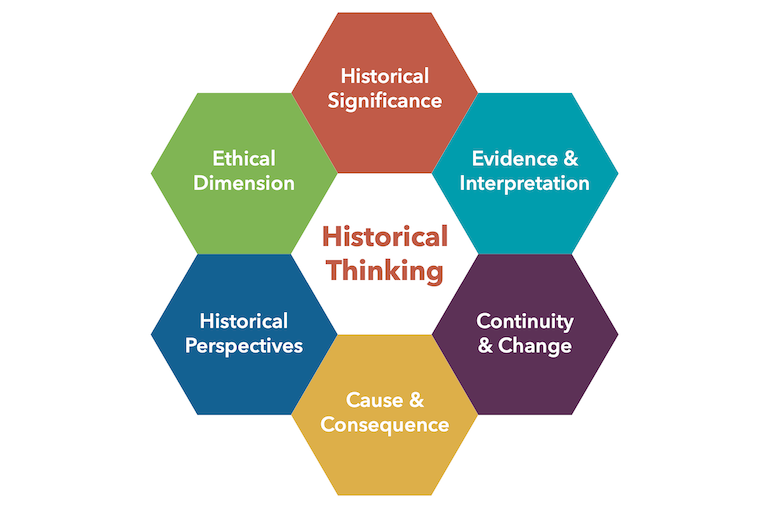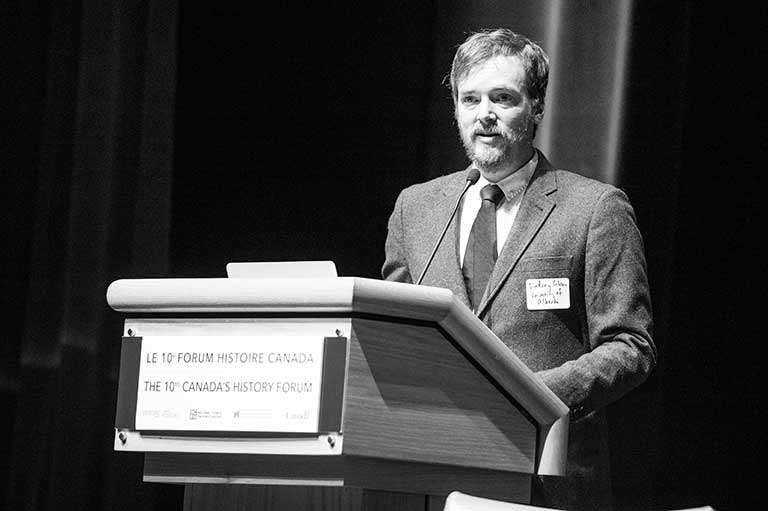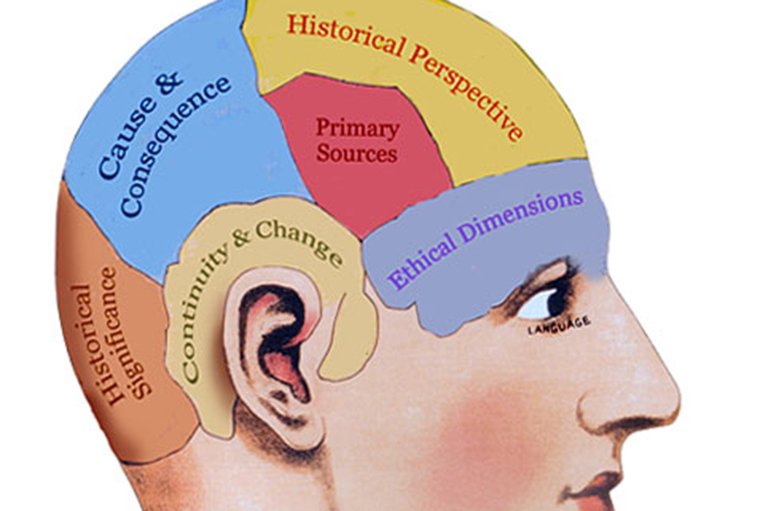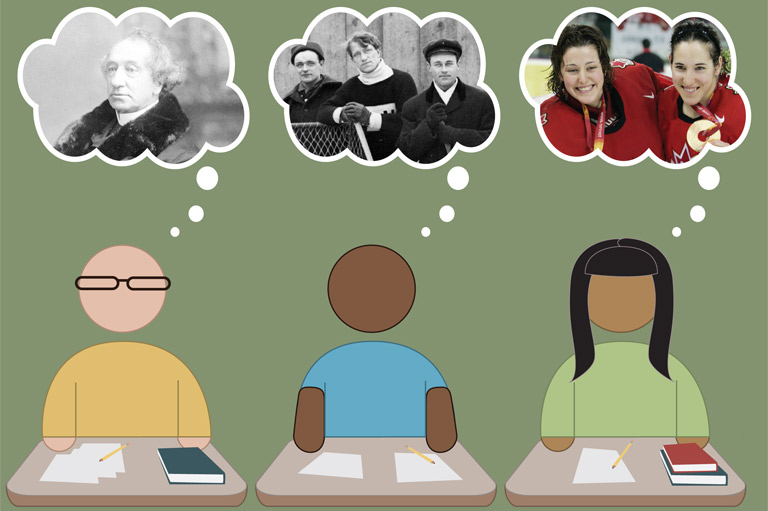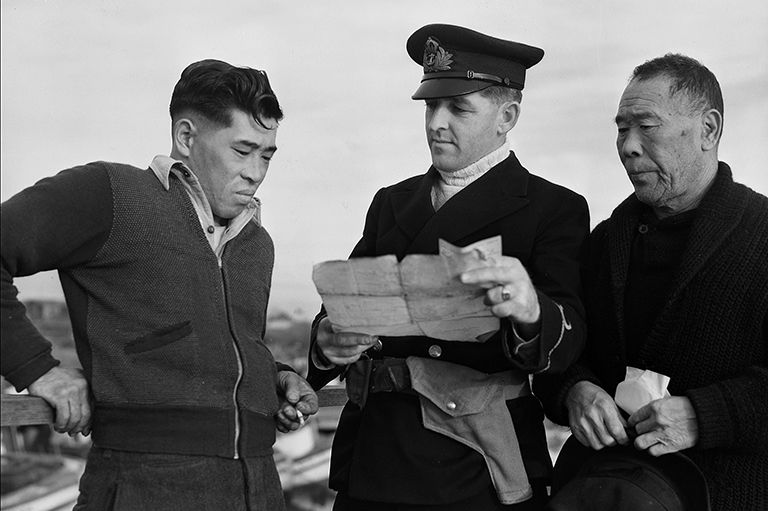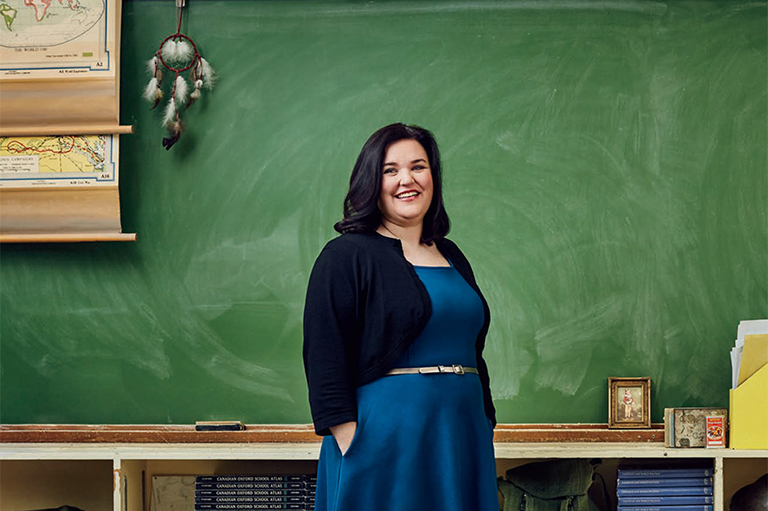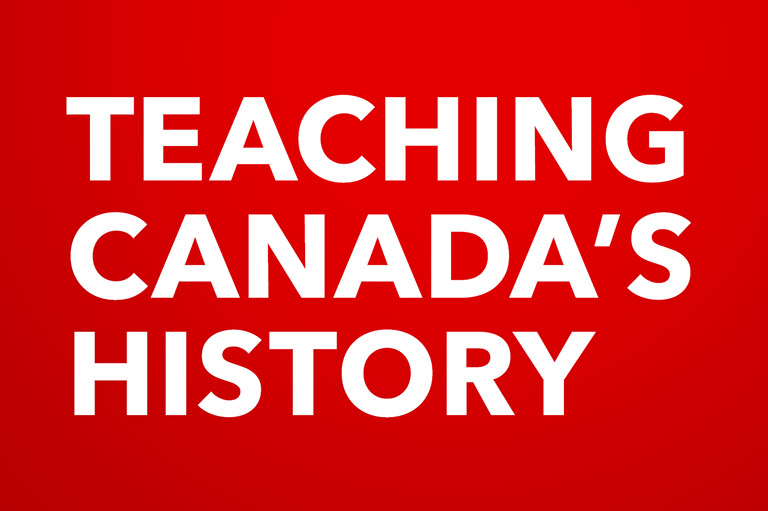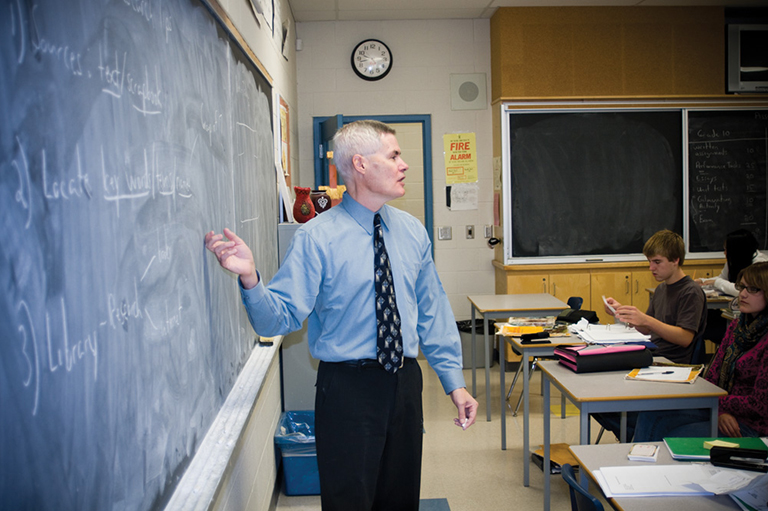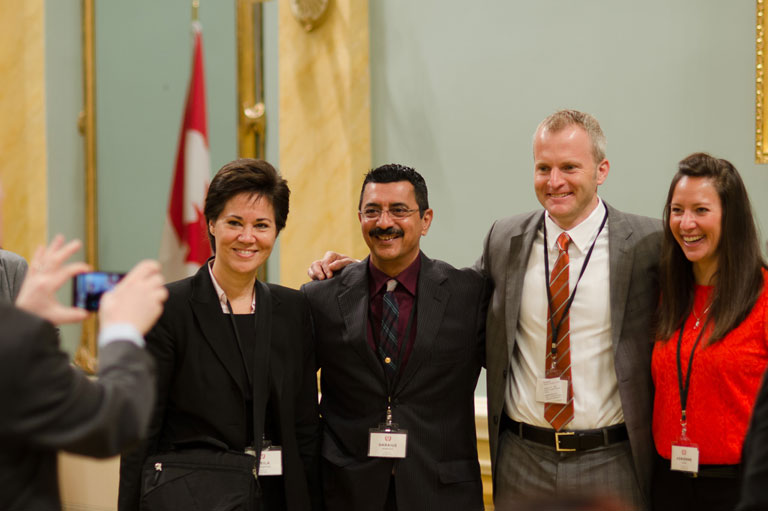Thinking About History
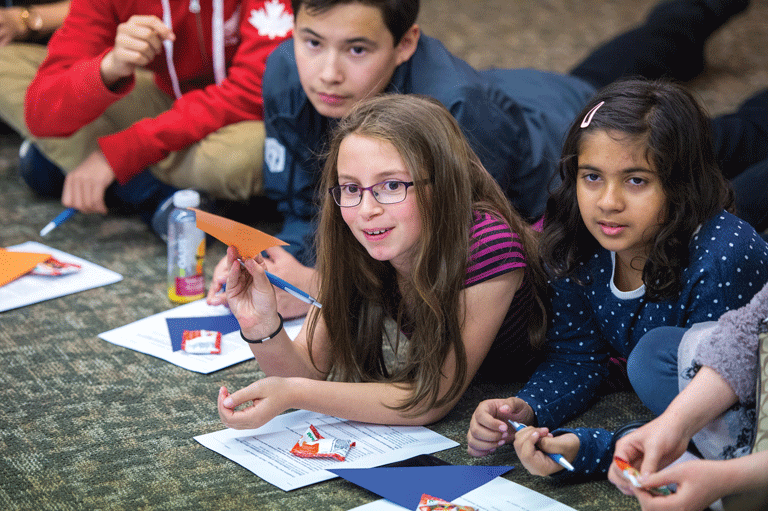
First introduced more than fifteen years ago by education expert Peter Seixas, the Historical Thinking Concepts — as an approach to teaching history — are now used widely in Canadian schools, textbooks, resources and curricula.
Historical thinking uses six distinct concepts that help people in going beyond dates, places, and events to think critically about our past. The concepts include:
- establishing historical significance (evaluating the importance of events and/or persons and establishing whether they reveal something relevant today);
- using primary-source evidence (such as letters, documents, and records);
- identifying continuity and change;
- analyzing cause and consequence;
- considering historical perspectives that reference the social, cultural, intellectual, and emotional settings of the past;
- and understanding the ethical dimensions of historical interpretations.
These concepts create a framework that helps teachers and students to think like historians.
Canada’s History Society is excited to partner with the Historical Thinking Project and the Canadian Museum of History to present this year’s annual Historical Thinking Summer Institute.
The intensive five-day program, to be held in Ottawa in early July, will challenge educators to improve their history teaching in order to help their students to become more competent historical thinkers.
This year marks the first time the Institute will also be presented in French, led by Catherine Duquette from L’université du Québec à Chicoutimi.
Lindsay Gibson, who is leading the English language summer institute, was a presenter at our recent National History Forum, held in Ottawa last November. The theme of the forum was “Making History Relevant.”
“How do we help students really think?” asked Gibson. “How can we design a history education that students can see themselves in?” (Watch the full presentation.)
In conjunction with this year’s Summer Institute, which is also being supported by the Department of Canadian Heritage, Canada’s History will host a national gathering of history educators and teachers’ associations.
It’s the second consecutive summer that Canada’s History has been able to bring this group together to build national level programming and to provide opportunities to share leading history education work.
Historical thinking brings life to the past and helps to make the Canadian experience more meaningful and engaging — one of our core objectives at Canada’s History.
It’s exciting to see the benefits of historical thinking and how this important framework changes the way we examine the Canadian experience while equipping young Canadians with the skills they will need for navigating the twenty-first century.
The Virtual Historical Thinking Institute will enhance your understanding of historical thinking and your expertise in designing history programs, courses, units, lessons, projects, or educational resources that explicitly focus on historical thinking.
Available in both French and English.
Themes associated with this article
Advertisement
You might also like...
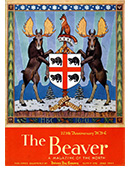
Canada’s History Archive, featuring The Beaver, is now available for your browsing and searching pleasure!

